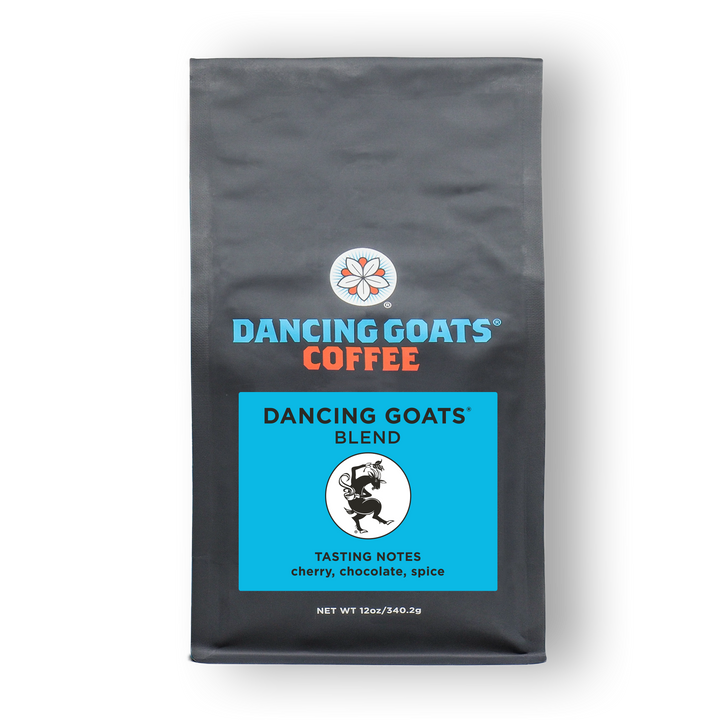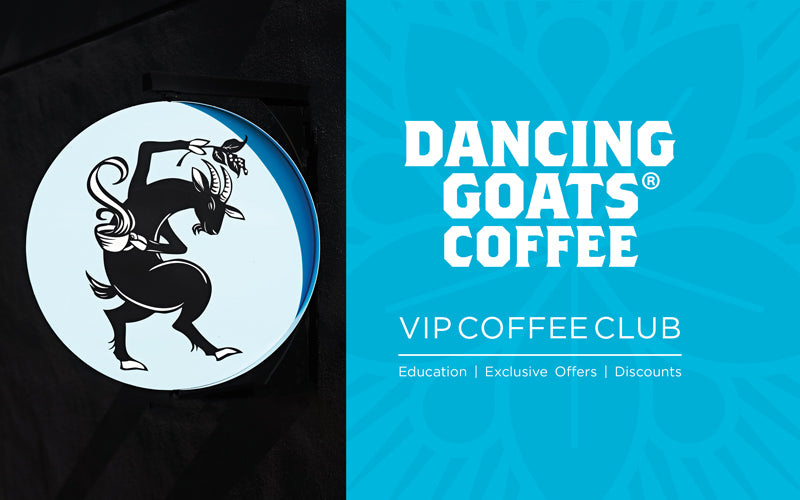Dancing Goats Coffee: The Buzz Behind The Beans
Let’s face it, coffee is more than just a drink—it’s a lifestyle. But have you ever heard of dancing goats coffee? It’s not just another fancy name; it’s a story that will make you question everything you know about your morning brew. Picture this: goats dancing around, munching on coffee cherries, and somehow, their digestive magic creates one of the most unique coffee experiences on the planet. Yeah, it’s as wild as it sounds!
Now, before we dive headfirst into the world of dancing goats coffee, let me tell you something. This isn’t just any coffee. It’s a coffee that’s steeped in tradition, intrigue, and a whole lot of nature’s charm. Think about it—how often do you get to sip on something that’s been "crafted" by goats? Not every day, right?
So, why is this coffee so special? Stick around, because we’re about to take you on a journey through the fields where these goats roam free, the process behind the beans, and why this coffee might just change the way you think about your daily cup of joe.
Read also:Container Park Las Vegas The Ultimate Urban Playground You Cant Miss
Here's a quick table of contents to help you navigate through the article:
- What is Dancing Goats Coffee?
- The History of Dancing Goats Coffee
- How Dancing Goats Coffee is Made
- The Unique Flavor Profile
- Health Benefits of Dancing Goats Coffee
- Sustainability and Ethics
- Comparison to Kopi Luwak
- Where to Buy Dancing Goats Coffee
- Pricing and Value
- Frequently Asked Questions
What is Dancing Goats Coffee?
You’ve probably heard of coffee beans being processed in unusual ways—like the infamous kopi luwak, which involves civet cats. But what about goats? Yup, you read that right. Dancing goats coffee is a unique coffee variety where the beans are naturally processed through the digestive system of goats. These goats, often found in Ethiopia and other parts of Africa, love munching on coffee cherries. And as they digest, the cherries ferment, creating a flavor profile that’s unlike anything else you’ve ever tasted.
Now, don’t get me wrong—this isn’t some gimmick. The goats actually play a crucial role in the fermentation process, breaking down the cherry’s outer layer and leaving behind the bean with a distinct taste. The result? A coffee that’s rich, smooth, and packed with natural sweetness.
But why "dancing goats"? Well, it’s not just a cute name. These goats are known for their playful, energetic behavior—often hopping around and "dancing" after eating coffee cherries. It’s a sight to behold, and it adds a whimsical touch to the whole process.
Why is Dancing Goats Coffee So Unique?
Here’s the thing: coffee beans processed through animals aren’t new. But what sets dancing goats coffee apart is the sheer joy and naturalness of the process. Unlike kopi luwak, where civet cats are often kept in captivity, these goats roam freely in their natural habitat. It’s a win-win for both the goats and coffee lovers alike.
The History of Dancing Goats Coffee
The story of dancing goats coffee dates back to ancient Ethiopia, where coffee was first discovered. Legend has it that a goat herder named Kaldi noticed his goats becoming unusually energetic after eating coffee cherries. Intrigued, he decided to try the cherries himself—and the rest, as they say, is history.
Read also:Why Charles Amp Keith Has Become Every Fashionistas Goto Brand
Over time, people realized that the goats’ digestive process enhanced the flavor of the coffee beans. This discovery led to the development of what we now know as dancing goats coffee. While it may not be as well-known as other specialty coffees, it’s gaining popularity among coffee enthusiasts who appreciate its unique taste and ethical production methods.
How Did It Become Popular?
Fast forward to today, and dancing goats coffee is making waves in the coffee industry. Thanks to social media and word-of-mouth, more people are discovering this delightful brew. Coffee shops around the world are starting to offer it, and online retailers are making it easier than ever to get your hands on a bag of these magical beans.
How Dancing Goats Coffee is Made
Alright, let’s break it down. How exactly does this coffee get from goat to cup? Here’s the step-by-step process:
- Goat Grazing: The goats munch on coffee cherries, which are the fruit surrounding the coffee beans.
- Digestion: As the goats digest the cherries, the outer layer ferments, breaking down the sugars and enhancing the flavor.
- Collection: Farmers collect the partially digested beans from the goats’ droppings.
- Processing: The beans are then washed, dried, and roasted to perfection.
It’s a process that’s both natural and sustainable, ensuring that the coffee retains its unique qualities.
What Makes This Process Special?
The key to dancing goats coffee’s flavor lies in the fermentation that occurs during digestion. This natural process breaks down the sugars in the cherry, resulting in a coffee that’s sweeter and more complex than your average brew. Plus, the goats’ free-range lifestyle ensures that the beans are ethically sourced.
The Unique Flavor Profile
So, what does dancing goats coffee taste like? Imagine a cup of coffee that’s smooth, sweet, and full of fruity notes. Some describe it as having hints of chocolate, caramel, and even a touch of citrus. It’s a flavor experience that’s hard to put into words—but trust me, once you try it, you’ll understand.
One of the reasons this coffee stands out is its balance. Unlike some specialty coffees that can be overly acidic or bitter, dancing goats coffee strikes the perfect harmony between sweetness and acidity.
Taste Test: What Do Experts Say?
Coffee experts around the world are raving about dancing goats coffee. Many have noted its complexity and depth of flavor, likening it to some of the finest single-origin coffees on the market. It’s no wonder it’s becoming a favorite among coffee connoisseurs.
Health Benefits of Dancing Goats Coffee
Now, let’s talk about the health benefits. Coffee, in general, is packed with antioxidants and can boost your mood and energy levels. But dancing goats coffee takes it a step further. The fermentation process during digestion enhances the bioavailability of certain nutrients, making it potentially more beneficial than regular coffee.
Some studies suggest that this type of coffee may have anti-inflammatory properties and could even help improve digestion. Of course, more research is needed, but the initial findings are promising.
Is It Better Than Regular Coffee?
While it’s not necessarily "better" than regular coffee, dancing goats coffee does offer some unique advantages. The natural fermentation process may make it easier on the stomach for those who are sensitive to caffeine. Plus, the ethical production methods make it a great choice for environmentally conscious consumers.
Sustainability and Ethics
One of the biggest draws of dancing goats coffee is its commitment to sustainability and ethics. Unlike some other animal-processed coffees, the goats involved in this process are allowed to roam freely in their natural habitat. This ensures that they live happy, healthy lives while contributing to the coffee industry.
Additionally, the farmers who produce dancing goats coffee often use eco-friendly practices, such as composting and water conservation. It’s a coffee that’s not only good for you but also good for the planet.
How Can You Support Ethical Coffee?
When purchasing dancing goats coffee, look for brands that prioritize ethical sourcing and sustainability. Many companies now offer certifications that guarantee the coffee is produced in an environmentally friendly and humane manner.
Comparison to Kopi Luwak
Let’s talk about the elephant—or rather, the civet cat—in the room. How does dancing goats coffee compare to kopi luwak? While both involve animal processing, there are some key differences. For one, kopi luwak is often associated with unethical practices, as many civet cats are kept in captivity to produce the coffee. On the other hand, dancing goats coffee is entirely free-range, ensuring that the goats live happy, healthy lives.
Additionally, the flavor profiles differ. While kopi luwak is known for its earthy, musky taste, dancing goats coffee is sweeter and more fruit-forward. It’s a difference that many coffee lovers appreciate.
Which One Should You Choose?
Ultimately, the choice comes down to personal preference. If you’re looking for a coffee that’s ethically sourced and packed with flavor, dancing goats coffee is the way to go. But if you’re curious about the civet cat experience, kopi luwak might be worth a try—just be sure to do your research and choose a reputable brand.
Where to Buy Dancing Goats Coffee
Ready to try dancing goats coffee for yourself? Here are some places where you can find it:
- Online Retailers: Websites like Amazon and specialty coffee shops often carry dancing goats coffee.
- Coffee Shops: Some local coffee shops are starting to offer this unique brew, so it’s worth asking around.
- Direct from Farmers: For the ultimate experience, consider purchasing directly from the farmers who produce it. This ensures that you’re getting the freshest, most authentic product.
No matter where you buy it, make sure to check for certifications and reviews to ensure you’re getting a quality product.
What Should You Look For?
When shopping for dancing goats coffee, look for keywords like "free-range," "ethically sourced," and "sustainable." These terms indicate that the coffee was produced with care for both the animals and the environment.
Pricing and Value
Let’s talk money. Dancing goats coffee isn’t exactly cheap, but it’s worth the investment. Depending on where you buy it, you can expect to pay anywhere from $20 to $50 per pound. While this may seem steep, remember that you’re paying for quality, uniqueness, and ethical production.
Plus, think of it as an experience rather than just a purchase. Every cup of dancing goats coffee tells a story—one that’s worth savoring.
Is It Worth the Price?
Absolutely. When you consider the effort and care that goes into producing this coffee, the price tag makes sense. Plus, the flavor and ethical considerations make it a coffee that’s truly one of a kind.
Frequently Asked Questions
Still have questions? Here are some common ones:
- Is dancing goats coffee safe to drink? Absolutely! The beans are thoroughly washed and processed to ensure they’re safe for consumption.
- Where do the goats come from? Most of the goats involved in this process are from Ethiopia and other parts of Africa, where coffee is a staple crop.
- Does it taste different from regular coffee? Definitely! Dancing goats coffee has a unique flavor profile that’s sweeter and more complex than your average brew.
Final Thoughts
There you have it—the story of dancing goats coffee. From its origins in ancient Ethiopia to its modern-day popularity, this coffee is a testament to the power of nature and tradition. So, the next time you’re craving something truly special, give dancing goats coffee a try. Your taste buds—and the goats—will thank you.
Now, it’s your turn. Have you tried dancing goats coffee? What did you think? Leave a comment below and let us know. And if you enjoyed this article, don’t forget to share it with your fellow coffee lovers!


